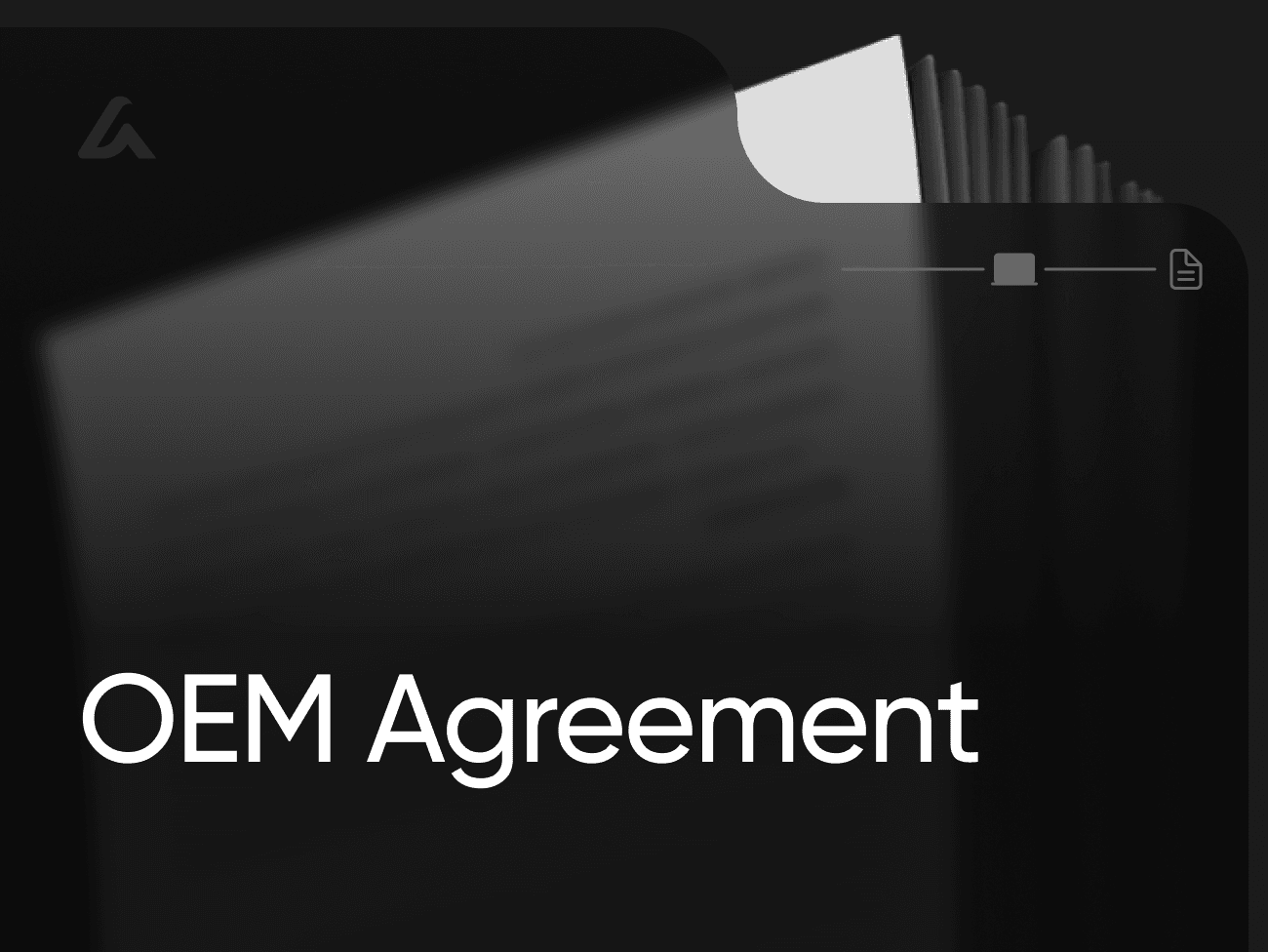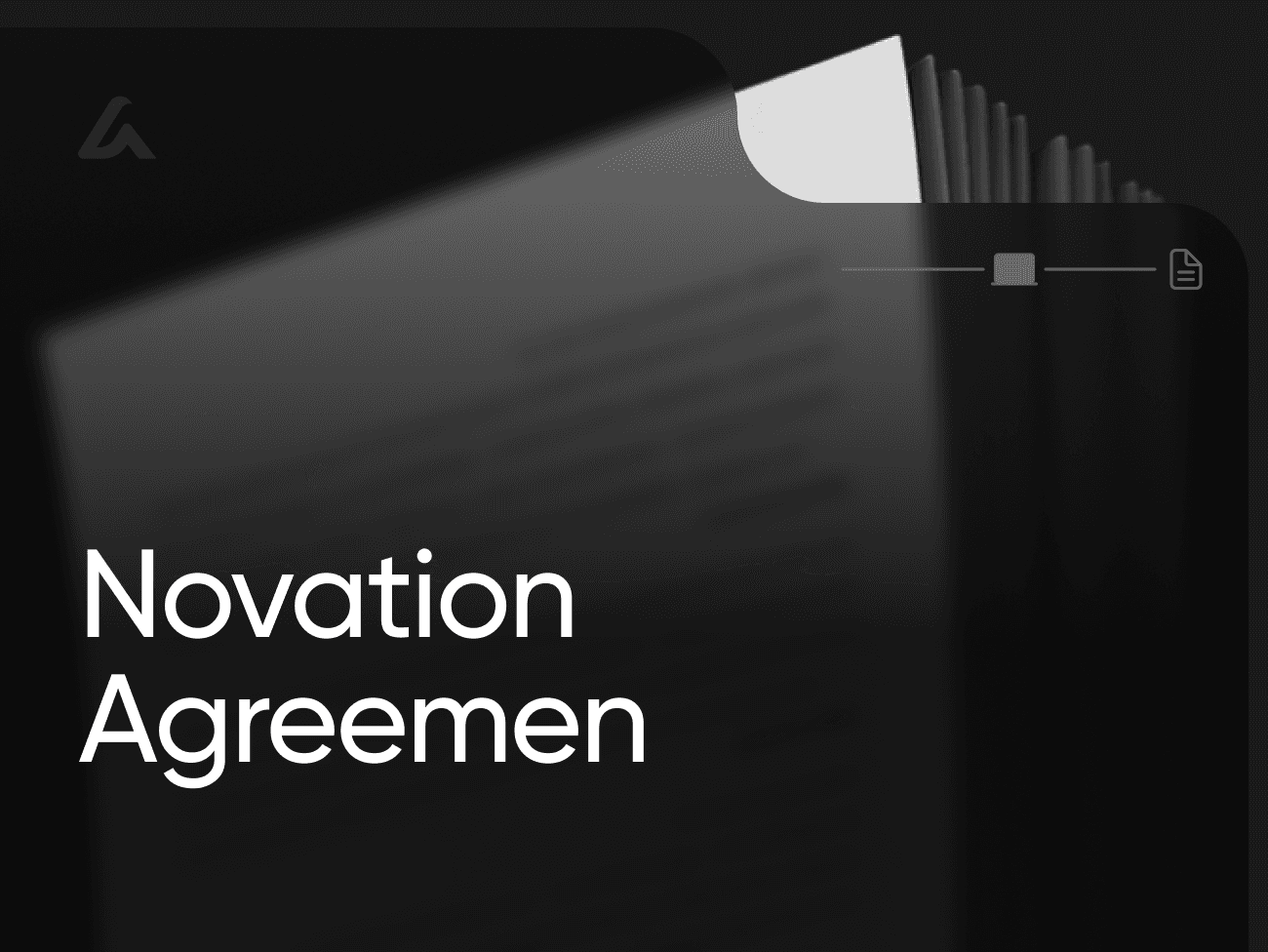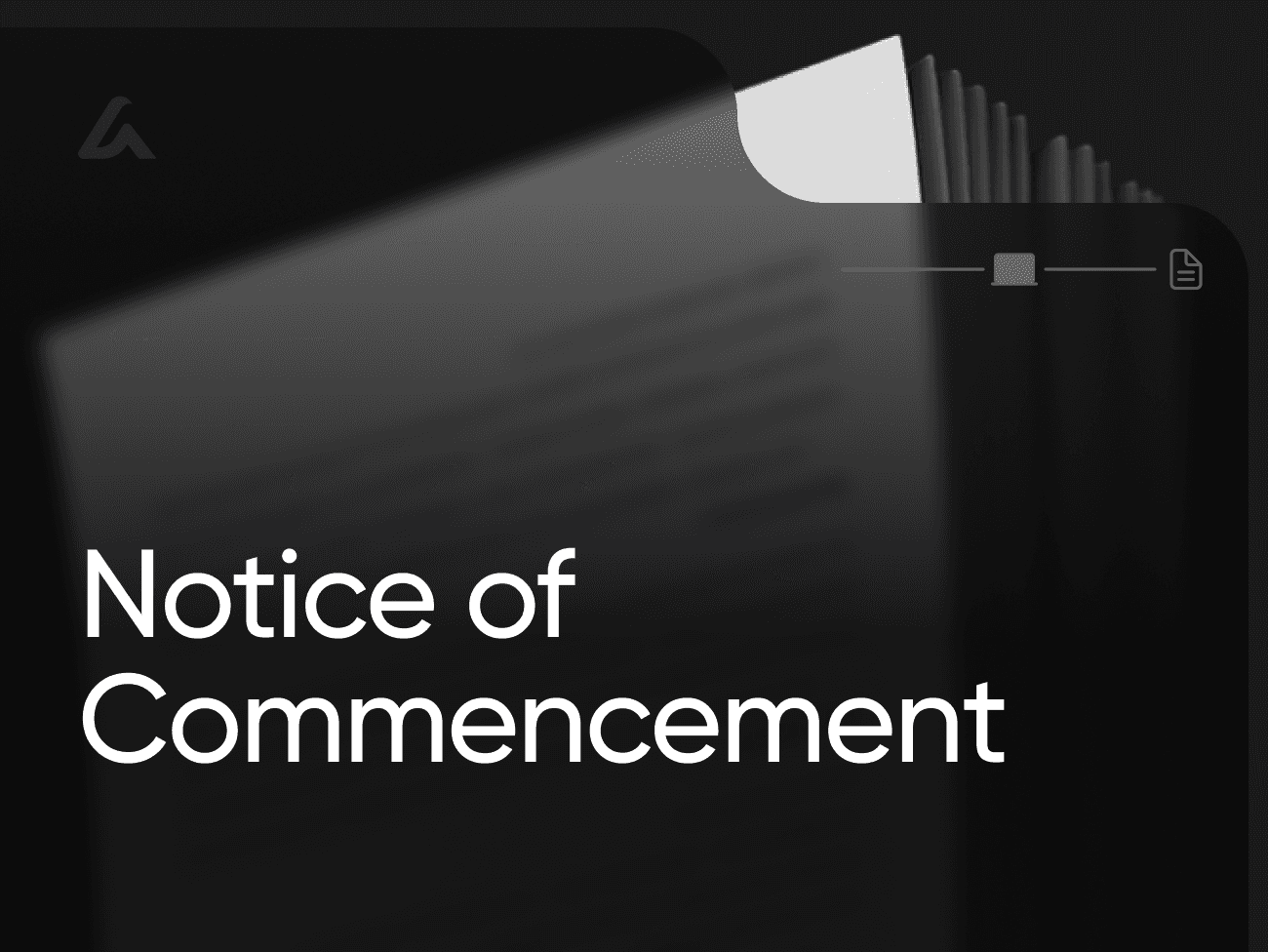AI Lawyer Blog
Non-Disclosure Agreement (Unilateral) - A Complete Guide

Greg Mitchell | Legal consultant at AI Lawyer
3
Sharing sensitive information without legal protection is a risk no business can afford. Whether you are presenting a business idea to investors, working with freelancers, or disclosing proprietary data to manufacturers, your confidential information must be safeguarded.
A Unilateral Non-Disclosure Agreement (NDA) provides that protection. It ensures that the receiving party is legally obligated to keep your information private, offering a clear framework for confidentiality and recourse in case of misuse.
In this guide, you will learn what a unilateral NDA is, when to use it, and how to create one quickly and effectively using our free professional template.
You Might Also Like:
What Is a Unilateral Non-Disclosure Agreement?

A Unilateral Non-Disclosure Agreement is a legal contract where one party agrees to keep the other party's information confidential. Unlike mutual NDAs, where both parties share sensitive information, unilateral NDAs are ideal when only one party discloses confidential data. This is common when businesses share proprietary information with contractors, freelancers, or potential investors.
Unilateral Non-Disclosure Agreement represents one of the many templates available within the NDA (Non-Disclosure Agreements) category featured on our website.
For a more comprehensive understanding of NDA (Non-Disclosure Agreements) — including their legal nuances, variations across jurisdictions, and practical applications — we invite you to explore our in-depth overview article dedicated to this document category.
Who Benefits Most from a Unilateral NDA?
A Unilateral Non-Disclosure Agreement is essential in situations where only one party is sharing confidential information. This document helps define legal boundaries, build trust, and prevent misuse of proprietary data — making it especially useful across various industries and roles.
Startup founders pitching to investors often need to reveal sensitive information such as business models, revenue projections, or product concepts. A unilateral NDA ensures these ideas aren't reused or disclosed without permission, even if the investor passes on the opportunity.
Businesses working with freelancers or contractors use NDAs when sharing marketing plans, client data, or technical documentation. For example, a design agency hiring a freelance developer can prevent unauthorized use of source code or internal tools.
Inventors and product designers collaborating with manufacturers rely on NDAs to protect 3D models, CAD drawings, and technical specifications, which could otherwise be copied or leaked to competitors.
Medical and research organizations frequently disclose test results, lab methods, or trial data to third parties. An NDA ensures this information stays confidential while maintaining compliance with data privacy regulations.
HR departments and financial professionals use unilateral NDAs when outsourcing salary benchmarking, legal audits, or internal restructuring plans — ensuring that sensitive operational data is kept private.
Whether you're protecting trade secrets or internal operations, a unilateral NDA creates enforceable expectations and minimizes the risk of loss, misuse, or competitive exposure.
Why Are Unilateral NDAs Crucial in 2026?
If you’re sharing sensitive information with freelancers, manufacturers, consultants, or potential investors, a unilateral NDA (non-disclosure agreement) is not optional it’s essential. Here’s why:
The Risk Without It: Without a legally binding NDA in place, there’s no enforceable way to stop someone from misusing or leaking your confidential data. This could cost your business thousands or even millions in lost IP, breached contracts, or reputational damage.
Data Breaches
According to IBM's 2023 Cost of a Data Breach Report, the global average cost of a data breach was $4.45 million. A unilateral NDA can help prevent internal leaks that contribute to these breaches, especially when sensitive data is shared with consultants, freelancers, or external vendors.
Trade Secrets Are Frequently Stolen
The FBI reports that trade secret theft costs the U.S. economy between $225 billion and $600 billion annually.
Legal Safeguard: An NDA provides a legal framework to address breaches, ensuring your business has recourse if confidential information is misused.
Trust Building: Having an NDA in place fosters trust with partners and stakeholders, showing professionalism and seriousness about protecting sensitive data.
When Should You Use a Unilateral NDA?
Unilateral NDAs are essential in scenarios where one party shares confidential information. Common situations include:
Hiring Freelancers or Contractors: When outsourcing tasks, ensure your business strategies and data remain confidential.
Pitching to Investors: Before revealing your business plan or financials, an NDA ensures your ideas are protected.
Sharing Product Designs: If you're discussing prototypes or unique designs with manufacturers or partners, an NDA safeguards your intellectual property.
Legal Importance and Context
Unilateral NDAs are more than just formalities; they are legal instruments that:
Define Confidential Information: Clearly outlines what information is protected.
Set Boundaries: Specifies how the information can be used and who can access it.
Provide Legal Recourse: In case of breaches, NDAs offer a basis for legal action, including injunctions and damages.
Ensure Compliance: Helps businesses comply with data protection regulations by documenting confidentiality agreements.
Protect Competitive Advantage: By keeping proprietary information confidential, businesses maintain their market edge.
⚖️ Legal Tip: The Three Clauses That Make or Break Your NDA
According to intellectual property attorneys, three specific clauses determine whether your NDA will hold up in court:
1. Definition of Confidential Information
The most litigated aspect of NDAs is what qualifies as "confidential." Courts consistently rule against overly broad definitions.
Expert Recommendation: Instead of simply stating "all information shared is confidential," your NDA should:
Specify categories of protected information (financial data, customer lists, algorithms, etc.)
Require confidential information to be marked as such or confirmed in writing within 30 days if disclosed verbally
Exclude standard exceptions (publicly available information, independently developed information, etc.)
2. Reasonable Protection Measures
Courts will only enforce NDAs if you demonstrate you've taken reasonable steps to protect the information yourself.
Case Law Insight: In *nClosures Inc. v. Block and Company*, the court refused to enforce an NDA because the plaintiff couldn't show they had implemented basic security measures for their own confidential information.
Your NDA should require the receiving party to implement specific protection measures that mirror your own practices.
3. Time Limitations
Perpetual NDAs are increasingly being struck down by courts as unreasonable restraints on trade.
Best Practice: For most business information, limit confidentiality obligations to 2-5 years. For genuine trade secrets, you can specify that protection continues "as long as the information remains a trade secret under applicable law."
📌 Real‑World Case: The $1.3M NDA Breach That Shaped Tech Contracts
In Ajaxo Inc. v. ETrade Financial Corp.* (2003–2010), Ajaxo provided wireless stock trading technology to ETrade under a mutually signed Non-Disclosure Agreement (NDA). Despite the NDA, ETrade shared Ajaxo’s proprietary information with Everypath, a related third-party vendor. A jury found ETrade liable for breaching the NDA and misappropriating trade secrets, awarding Ajaxo $1.3 million in damages. The California appellate courts upheld the liability for breach of contract and trade-secret misuse, forcing ETrade to pay up under the NDA’s terms.
Key Takeaway: A well-crafted NDA that clearly defines confidential information and limits third-party disclosure can hold up — even against corporate giants. NDA breaches combined with misuse of shared trade secrets carry significant legal and financial risk.
🔑 Additional Insight: Industry-Specific NDA Considerations
Different industries require specific NDA provisions to adequately protect information:
Industry | Critical Information to Protect | Special Considerations |
|---|---|---|
Technology | Source code, algorithms | Include "clean room" development clauses |
Healthcare | Patient data, research | HIPAA compliance language required |
Manufacturing | Production processes, formulas | Include physical samples in definition |
Entertainment | Creative concepts, scripts | Specify idea submission protocols |
Financial Services | Trading strategies, client lists | Include regulatory compliance clauses |
For maximum protection, customize your NDA template with industry-specific provisions rather than using a one-size-fits-all approach.
Expert Insights
“A nondisclosure agreement (NDA) helps a business protect its trade secrets by giving the company legal recourse against an employee who discloses confidential information.”
— Glen Secor, Nolo Legal Encyclopedia
“In the last fiscal year alone, economic espionage and theft of trade secrets cost the American economy more than $19 billion.”
— FBI, Economic Espionage: Competing For Trade By Stealing Industrial Secrets
How to Properly Fill Out Each Section of a Unilateral NDA Template
Understanding and correctly filling out each section ensures the NDA's effectiveness:
Parties Involved: Clearly state the disclosing and receiving parties' names and contact information.
Definition of Confidential Information: Specify what constitutes confidential data, including business plans, financial records, or proprietary technology.
Obligations of Receiving Party: Detail the responsibilities, such as not disclosing information and using it only for specified purposes.
Exclusions: List information not covered by the NDA, like publicly available data.
Duration: Define how long the confidentiality obligations last, typically ranging from 1 to 5 years.
Return or Destruction of Information: Outline procedures for returning or destroying confidential materials upon termination.
Legal Remedies: State the consequences of breaches, including potential legal actions.
Governing Law: Indicate which jurisdiction's laws govern the agreement.
Signatures: Ensure both parties sign and date the agreement to make it legally binding.
Tips for creating a Unilateral NDA Effectively
Maintain Digital Copies: Store signed NDAs securely, both digitally and physically.
Verify Information: Ensure all details are accurate and up to date before signing.
Communicate Clearly: Discuss the NDA's terms with the receiving party to ensure understanding and compliance.
Download Your Free Unilateral NDA Template
How AI Lawyer Creates Your Document (Step-by-Step)
At AI Lawyer, we believe that drafting legal documents shouldn’t feel like decoding a foreign language. Whether you’re a business owner, landlord, freelancer, or someone navigating a personal matter — you should be able to create a legally sound document without needing a law degree.
That’s why we built a document experience that works like a conversation, not a form. Here’s exactly how it works:
1. You Tell AI Lawyer What You Need
It starts with a simple question:
“What type of document do you want to create?”
You choose from our list of professional templates — whether it’s a rental agreement, contractor form, invoice, publishing contract, or anything else — and AI Lawyer immediately pulls up the structure designed specifically for that use case.
Behind the scenes, the system references U.S. legal standards and best practices to make sure you’re starting from the right foundation.
2. We Highlight the Key Sections
Instead of throwing the whole document at you, AI Lawyer breaks it down.
Each key component — like payment terms, deadlines, responsibilities, clauses — is briefly explained in human language so you know what it means before you fill it out.
It’s like having a lawyer on your shoulder saying,
“Here’s what this section covers, and why it matters.”
3. You Answer Simple, Targeted Questions
AI Lawyer asks you step-by-step questions — like:
Who’s involved?
What are the key dates or timelines?
What are the terms (payments, conditions, obligations)?
Do you need special clauses like confidentiality, termination, or jurisdiction?
Each question is directly linked to a block in the final document — so your answers go exactly where they belong.
4. The Document Builds Itself As You Go
On the right side of your screen, the full document builds in real time.
Every time you answer a question, a corresponding section is added — with legally sound wording, smart defaults, and editable fields.
You’re not just answering a form — you’re watching your document take shape.
This phased process helps:
Reduce overwhelm
Catch errors early
Ensure nothing is forgotten
5. You Edit and Customize Freely
Once all the inputs are in, the full document is unlocked for editing.
You can:
Rewrite any clause
Change formatting
Add or remove sections
Rephrase terms in plain English (or more formal legal tone)
The editor works like a Google Doc — intuitive, responsive, and flexible.
6. Your Final Document Is Yours to Keep
Download in PDF, DOCX, or copy to clipboard.
You can print it, email it, or send it for signature — and revisit your answers anytime to generate updated versions.
Why This Workflow Matters
Most template tools give you a blank form.
We give you a process — one that mirrors how a real attorney would walk you through the creation of a document:
Context → Input → Assembly → Review → Delivery
It’s not magic. It’s just a smarter way to get legal work done — without getting lost in the jargon.
FAQs
Q: Can a unilateral NDA be enforced internationally?
A: Yes, but enforcement depends on the jurisdictions involved. It's crucial to include a governing law and jurisdiction clause in your NDA to clarify which country’s laws apply.
Q: Is an NDA necessary if I trust the other party?
A: Trust is important, but a written NDA creates legal clarity and recourse. Even trusted relationships can turn sour — an NDA ensures both parties understand their confidentiality obligations.
Q: What happens if the NDA is breached?
A: Breaches can lead to serious consequences, including legal action, financial penalties, injunctions, or reputational damage. A well-drafted NDA provides the foundation to pursue these remedies in court.
Q: Does a unilateral NDA need to be notarized?
A: In most cases, notarization is not required for enforceability. However, having the NDA signed and dated by both parties is essential. In some jurisdictions or high-stakes situations, notarization may add credibility.
Q: Can I use the same NDA template for different recipients?
A: Yes, but it’s best practice to review and adjust the NDA for each situation. Different recipients may require tailored clauses, such as unique confidentiality terms or different governing laws.
Q: Is verbal disclosure covered under a unilateral NDA?
A: Only if the NDA includes a clause requiring verbal disclosures to be confirmed in writing within a specified time (e.g., 30 days). Without this, verbal disclosures may not be protected.
Sources and References
Data and risk figures in this guide are based on IBM’s 2023 Cost of a Data Breach Report, which reports a global average breach cost of $4.45 million, and U.S. government estimates of trade-secret losses from the FBI’s executive summary China: The Risk to Corporate America, placing annual economic damage from counterfeit goods, pirated software, and trade-secret theft in the $225–$600 billion range. Definitions of trade secrets and confidentiality obligations reflect official guidance from the USPTO’s Trade Secret Policy, WIPO’s overview of trade secrets as intellectual property rights, and federal analyses of the Economic Espionage Act and trade-secret theft, which together explain how reasonable protection measures and NDAs support legal protection. Practical NDA drafting insights and case-law references draw on Nolo’s explainer on using nondisclosure agreements to protect business information, appellate decisions in nClosures Inc. v. Block & Co., Inc. and Ajaxo Inc. v. E*Trade Financial Corp. addressing enforceability and reasonable safeguards, and professional commentary from the American Bar Association and Butzel Long on time limitations and modern enforceability standards for NDAs and recommended confidentiality durations.
Final Thoughts
Protecting your business's confidential information is non-negotiable in today's competitive environment. Utilizing a Unilateral NDA ensures your proprietary data remains secure. Download our free template and customize it effortlessly with AI to suit your specific needs.
You Might Also Like:



